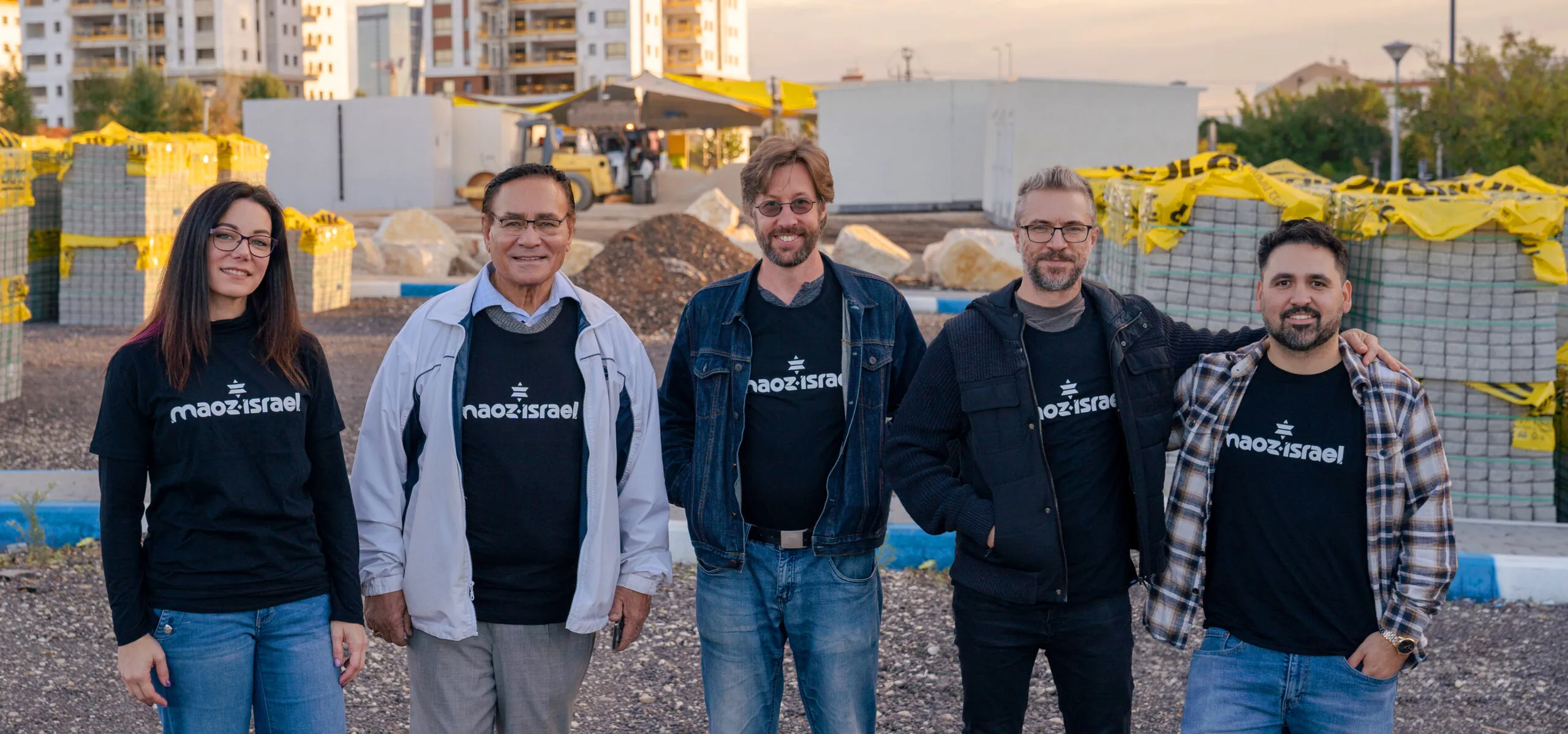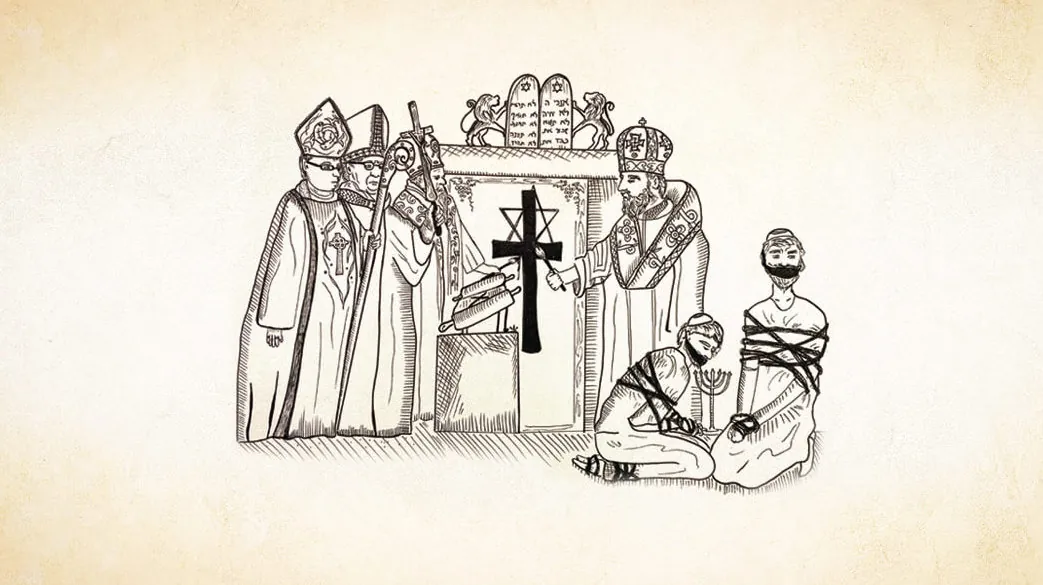
When her daughter was born, she had the same dreams as every mother. From ponytails to wedding dress, she could envision it all. She would raise her daughter to be a lovely bride and capable wife and be rewarded one day with—grandkids!
All her hopes came crashing down when her daughter started having fits. Not the toddler kind of fits that everyone eventually outgrows. These were wild—supernaturally violent fits. No man would want her daughter now. And if she had any other children—no one would want to be associated with them either. As far as everyone else was concerned, they were cursed by the gods.
Then one day, she heard a rumor that a man with an unknown god’s power was traveling nearby performing incredible miracles. It wasn’t a god her people worshipped, but she didn’t care. Clearly, her gods were incapable or uninterested in her affliction.
“Sir, my daughter needs your help!” she said, both pleading and excited when she finally found him.
The man ignored her and kept walking.
She repeated herself, each time a little louder, thinking perhaps he hadn’t heard her.
Still, he acted as if she wasn’t there. The only response she received was annoyed glances from those walking alongside the man.
‘I should be more specific; perhaps he thinks I’m simply begging for money.’
“My daughter is suffering terribly from an evil power,” she tried.
When one of the bystanders finally spoke, it wasn’t to her, it was to him, “Send her away already–she’s disturbing everyone.”
When she persisted, the man finally addressed her, “I’m not here to help your people; I’m only here for mine. It isn’t right to take this precious gift intended for the Children of Israel and throw it to a people as worthy as dogs.”
We all know her response, “Even dogs get to eat the crumbs,” impressed Yeshua so much that the woman got the crumb she had come for. Her daughter was set free, and her story was immortalized in the Scriptures.
What most people overlook, however, is that this was Yeshua’s attitude toward every Gentile who approached Him during His lifetime. He wasn’t there to save the nations of the world. He had come only for Israel. (Matt 15:24)
After supper, He took another cup of wine and said, “This cup is the new covenant between God and His people—an agreement confirmed with My blood, which is poured out as a sacrifice for you.” (Luke 22:20) The covenant was called “new” because other covenants already existed.
How it Started
It’s worth Christians taking a moment to process that if you were not Jewish when Yeshua died—or when the Holy Spirit came down on Pentecost—you weren’t invited to the party. All the disciples Yeshua called to follow Him were direct descendants of Abraham, Isaac, and Jacob. The thousands of new believers added to the Kingdom the day the Holy Spirit came down, were exclusively Jews, many of whom were visiting Jerusalem to celebrate the Jewish Feast of Shavuot (First Fruits).
What Christians today often consider to be burdensome rules from the Law were simply a way of life for Yeshua and His followers. After three years of the disciples traveling with Yeshua, and even after the Holy Spirit arrived, nothing changed in their behavior as Jews. They continued to go to the synagogue and Temple. They never desired to be “free” to eat unclean food and did not begin meeting on Sunday— as Sunday is a workday in Israel to this day.
Yeshua never heard the name “Jesus” while on earth. His mother Miriam was never called Mary, and Yeshua’s brother Jacob wasn’t called James until King James translated the Bible over 1,000 years later. They did not celebrate Easter, Christmas, or Lent. They did not start a new religion.
 Peter meets Cornelius – Credit: GoodSalt
Peter meets Cornelius – Credit: GoodSalt
Then the World Flipped
The mission to reach the lost sheep of the House of Israel was clear to Yeshua’s followers—until the world turned on its head. In a supernaturally coordinated effort, God set up a meeting between Cornelius and the Apostle Simon Peter (see Acts 10). Cornelius was a centurion, who, like the other Gentiles who had approached Yeshua, identified the God of Israel as powerful. When an angel appeared to Cornelius, he explained it was Cornelius’ devout prayers and generosity towards the Jewish people that resulted in the visitation. He would be the first non-Jew invited into the New Covenant.
Simon Peter was a rambunctious loudmouth who always seemed to be willing to push the limits of what was permitted. This made him a great candidate for doing something that seemed crazy to the Jewish mind—offering the Jewish New Covenant to an ‘unclean human’—a Gentile. So right before Cornelius’ messengers arrived where he was staying in Jaffa, God gave Simon a difficult vision and showed him heaven’s perspective of the true status of non-Jews.
Upon arriving at Cornelius’ house, he [Simon Peter] addressed the people there saying, “You are well aware that it is against our law for a Jew to associate with or visit a Gentile. But God has shown me that I should not call anyone impure or unclean. So when I was sent for, I came without raising any objection. May I ask why you sent for me?” (Acts 10:28-29)
The story goes on to tell how Simon Peter, upon hearing of Cornelius’ angelic visitation, shares the story of Yeshua and is shocked when the Holy Spirit comes down on the people in the room. Simon promptly recognizes God has “changed the rules”—at least as far as he had understood them—and has them all partake in the Jewish spiritual cleansing practice of immersion. Consequently, Simon receives fierce opposition from other Jewish believers until he shares the supernatural way in which the entire event happened, and they, too, are in awe that the God of Israel is now accepting other nations into His fold.
When they heard this, they had no further objections and praised God, saying, “So then, even to Gentiles God has granted repentance that leads to life.” (Acts 11:18)
What follows are years of heated discussions about how the Jews’ New Covenant applied to these Gentiles. Believers from among the Pharisees (yes, they existed; see Acts 15:5) insisted on circumcision and adherence to the Law of Moses in order to partake of the New Covenant. But Simon Peter, Paul, and Barnabas—who continued to adhere to the Jewish practices themselves—shared proof of God’s acceptance of the Gentiles when they merely embraced the New Covenant by faith. Subsequently, the Jewish leaders agreed on some fundamental points and sent instructions regarding morality and generosity for non-Jews who wanted in on the Covenant.
Years pass and large numbers of Gentiles all over the Roman Empire accept this message of salvation and forgiveness of sins through Yeshua, the Son of the one true God. Those people gained the name “Christians”—the Greek word for “little anointed ones” (followers of the Anointed One). But the learned Jewish Apostles who brought the New Covenant message to the nations were only there in the beginning. When the Roman empire crushed Jerusalem, many Jewish believers were killed. Those who were scattered were so few in comparison to the number of Christians that much of the Church’s doctrine was developed independently of Jewish understanding. With the Scriptures written in large, heavy, and expensive scrolls, many of these Christians would only have access to parts of Scripture. Few ever saw even half of the Bible as we know it today.
As generations passed, and the message of the Savior continued to spread, the New Testament letters circulated widely, but their context as having been written by Jews was all but forgotten. Without Jewish input, the Gentile belief in Yeshua, which became known as Christianity, went through dark times. It became institutionalized with a mixture of pagan culture, idolatry, and a hierarchy which would make up the rules as they went.
Where Jews knew better than to create idols to worship, Christians with their Gentile background of paganism, erected and prayed to statues. And where Christians from many nations had once been grateful to be included in God’s New Covenant with His chosen Israel, they now fancied themselves to be the new people of God!
Thankfully, in the last century, much of the error has been shaken off. Even today, however, you can find remnants of this approach as New Testament Bibles are printed without the “less relevant” Old Testament. It is also not uncommon to hear preachers teach their parishioners, “Wherever you see God’s promises to Israel in the Bible, just replace Israel with your name—because when God says Israel, He means you!”
For the record, reading the Bible and asking God for the blessings He has promised Israel is an excellent practice—as long as it is clear that the original promise also remains for Israel!
The historical context laid out above is essential, in order to understand the absurdity of the fact that Christians today are not unanimous in their answer to the following question:
Should Jews be told about Yeshua?
This question recently set off a firestorm because of the April launch of a TV station in Israel which for the first time ever, obtained licensing to air shows in Hebrew and Arabic about Yeshua as the Jewish Messiah.
No one was surprised when influential Jews in Israel opposed the airing of this channel; what surprised everyone was the fierceness by which some Christians objected to this channel airing.
I wanted to understand their reasoning before I responded, but as I watched all the arguments go back and forth, I realized many of the areas of disagreement were nuanced and weren’t addressing the central issue. And so, the question I raise in this article is not whether a TV channel should exist in Israel or whether one theological approach when witnessing is better than another, but rather, fundamentally, should the message of the New Testament be shared with the Jewish people?
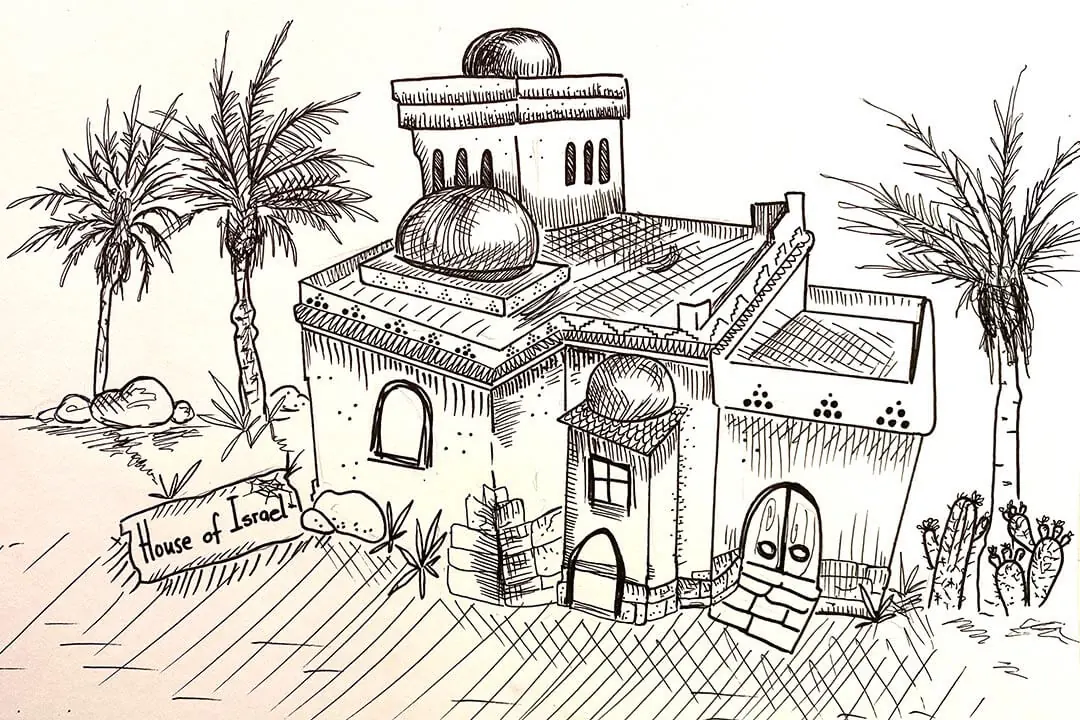
Hijacked Covenant
Imagine inviting people over to your home—a home that has been passed down for generations in your family, with beautiful jewels, vases, paintings, and furniture. Upon entry, your guests are awed by the beauty of your home—they have never seen anything like it and ask before they dare touch any item.
They return often, bringing friends. Soon they know your place well enough to show off everything without your guidance. Your original guests bring more friends, and those friends bring their friends—some of the newer ones barely nod your way. It feels odd, but it’s still wonderful to see the joy on people’s faces as they go through your home and marvel at its wonder. People are so mesmerized they come by the droves to take pictures in front of your now-famous home. Some even begin moving into the neighborhood just so they can be close and visit more often.
Then one day you come home, and your house is full of people—friends of friends of friends—and none of them recognize you. You try to go in the door, but people near the front door look you up and down and decide, you don’t look like you belong in a neighborhood like this. They won’t let you in.
Then on second thought, one of them offers, maybe if you changed your clothes to look more like them …they’ll let you enter to enjoy their house.
As you stand in the yard considering your options, someone slides the window open on the second floor and tosses several of your oldest clay vases out the window—just like you, those vases didn’t fit their motif.
Only if you can imagine the feeling of this scenario can you begin to grasp what it’s like to be a Jewish believer in Yeshua and watch Christians indulge in the blessings of our covenant and then try to ban us and our people from having access to that very covenant.
I wonder what the Apostle Paul would have thought if he had known that the descendants of those Gentiles whom he risked his life to reach with the message of Yeshua would shut the Kingdom out for his own people? For the very people of which he said:
My heart is filled with bitter sorrow and unending grief for my people, my Jewish brothers, and sisters. I would be willing to be forever cursed—cut off from Yeshua!—if that would save them. (Romans 9:2-3)
You could argue that Christians should not try to convert Jews to Christianity. May I add, it’s entirely unnecessary and even counterproductive! Christians are grafted into the Jewish New Covenant; Jews aren’t grafted into a Christian covenant. Jews who abandon their Jewish heritage for a Gentile-type Christian life may enjoy the benefits of forgiveness of sins and eternal life, but will miss out on the unique calling God has bestowed on Israel.
You could argue that Christians should study the uniqueness of the Jewish people before they run off trying to witness to them in the same way they would approach any other people group.
You could even argue that Christians have a lot of bridge-building to do because of centuries of atrocities committed in the name of Yeshua (see “The Church History They Don’t Teach You” in this issue for more details).
You could definitely argue that it is much more effective—and even more appropriate as a whole—to support Jewish believers to reach their own people rather than sending Gentiles from the outside.
However, Christians who argue that Jews should not be told about the New Covenant display an incredible ignorance of the source of their own salvation. Remember, Yeshua said, “Salvation is from the Jews.”
Furthermore, Christians who take action to block Jews from having access to the Covenant Yeshua Himself came to make with His people Israel—risk standing in the way of God’s fierce love for the people He affectionately refers to in Isaiah as His “inheritance.”
To be clear, it was always God’s intention to restore all of mankind to Himself. When John the Baptizer saw Yeshua, he spoke by inspiration when he said, “Behold the Lamb of God who takes away the sin of the world.”
But when God is the one doing the rescuing, He gets to make His own rules. And His plan was to take in the Jewish people and, through them, save the world. He knew they would reject Yeshua and He used that rejection to reach the nations.
Now, it is the Christians’ turn to demonstrate their gratitude by both carrying Israel as a burden of prayer and provoking them to jealousy.
This provocation won’t happen by merely backing Israel politically and apologizing for Church history, or worse, declaring Israel already had a Covenant, and doesn’t need another one. Rather, it will happen when Jews observe the changed lives of Gentiles and their intimacy with the Ancient of Days, and discover it is all made possible through a New Covenant God offered the Jews first.
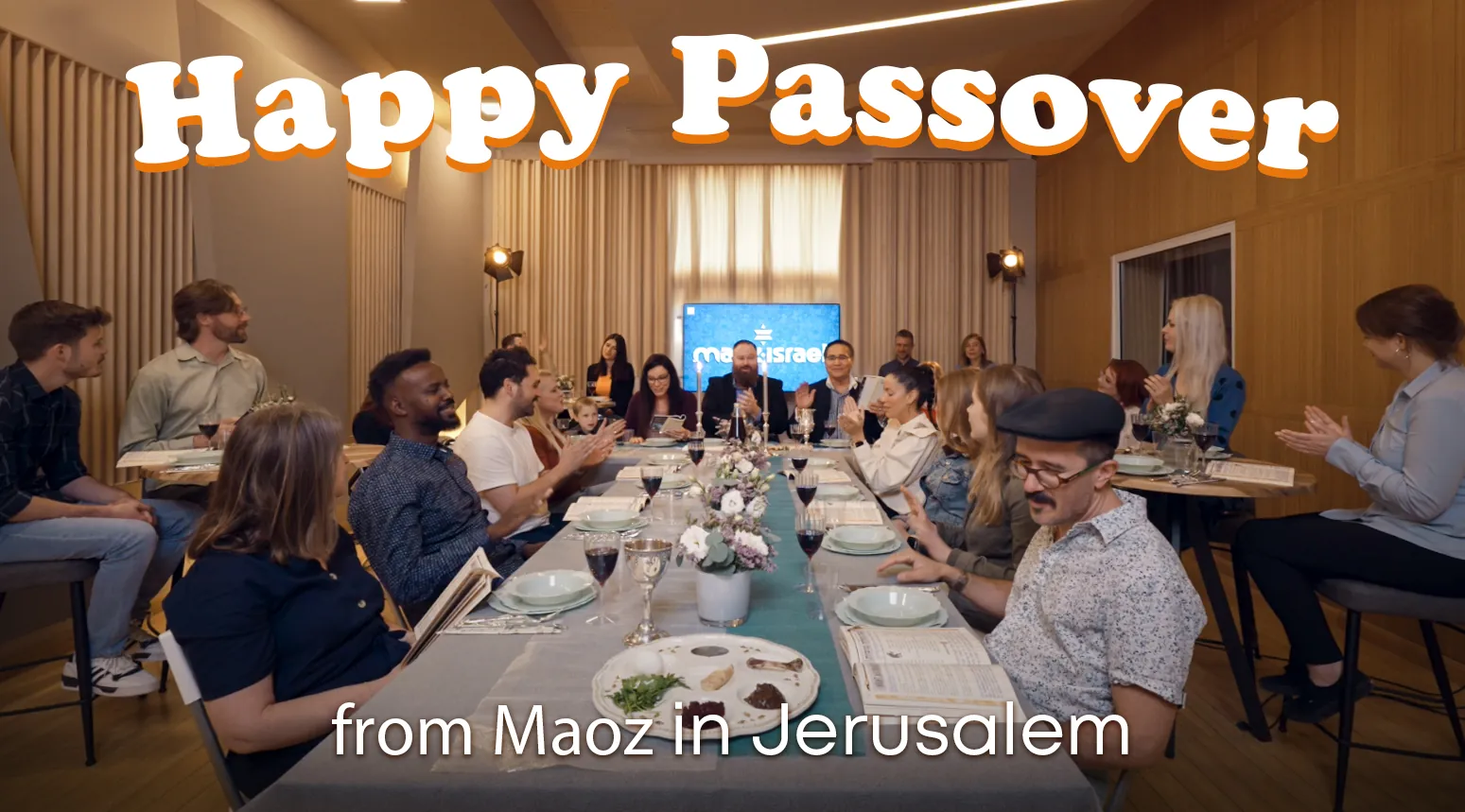
Happy Passover!

What is a Promised Land?

The Scariest Parable in the Bible

Restoration of Our Land
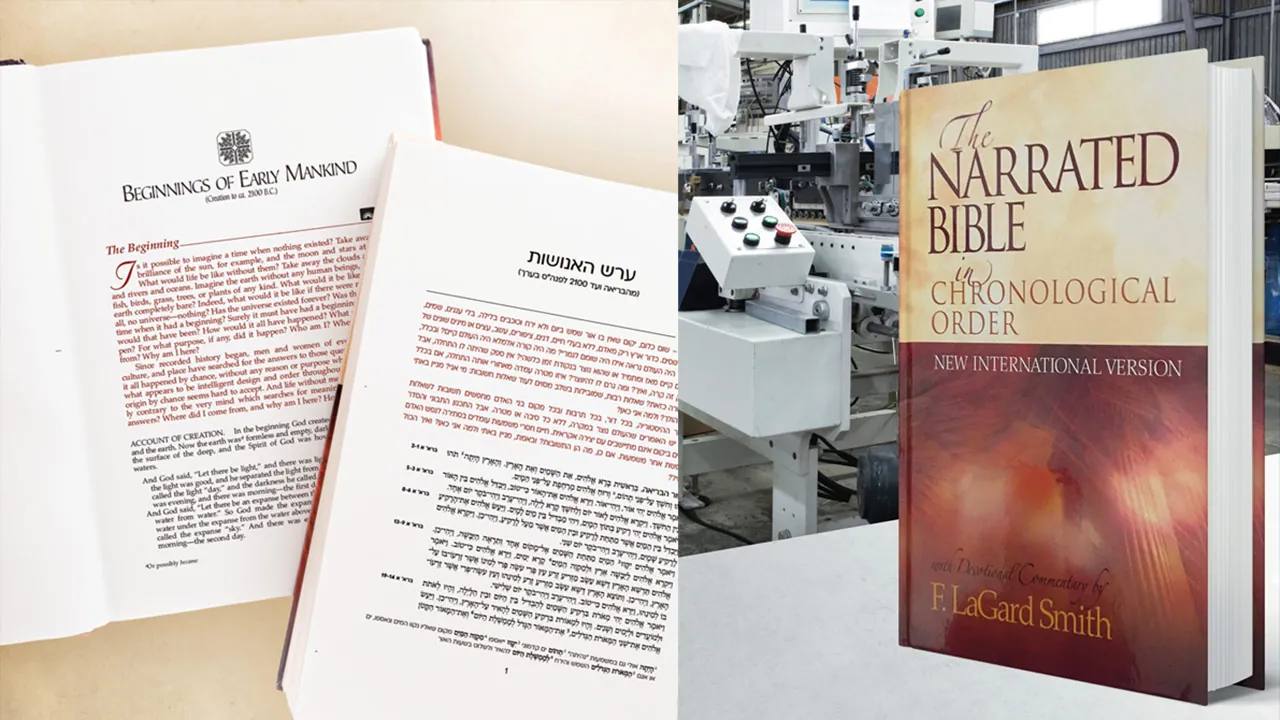
What Makes this Hebrew Bible Different From All Others?
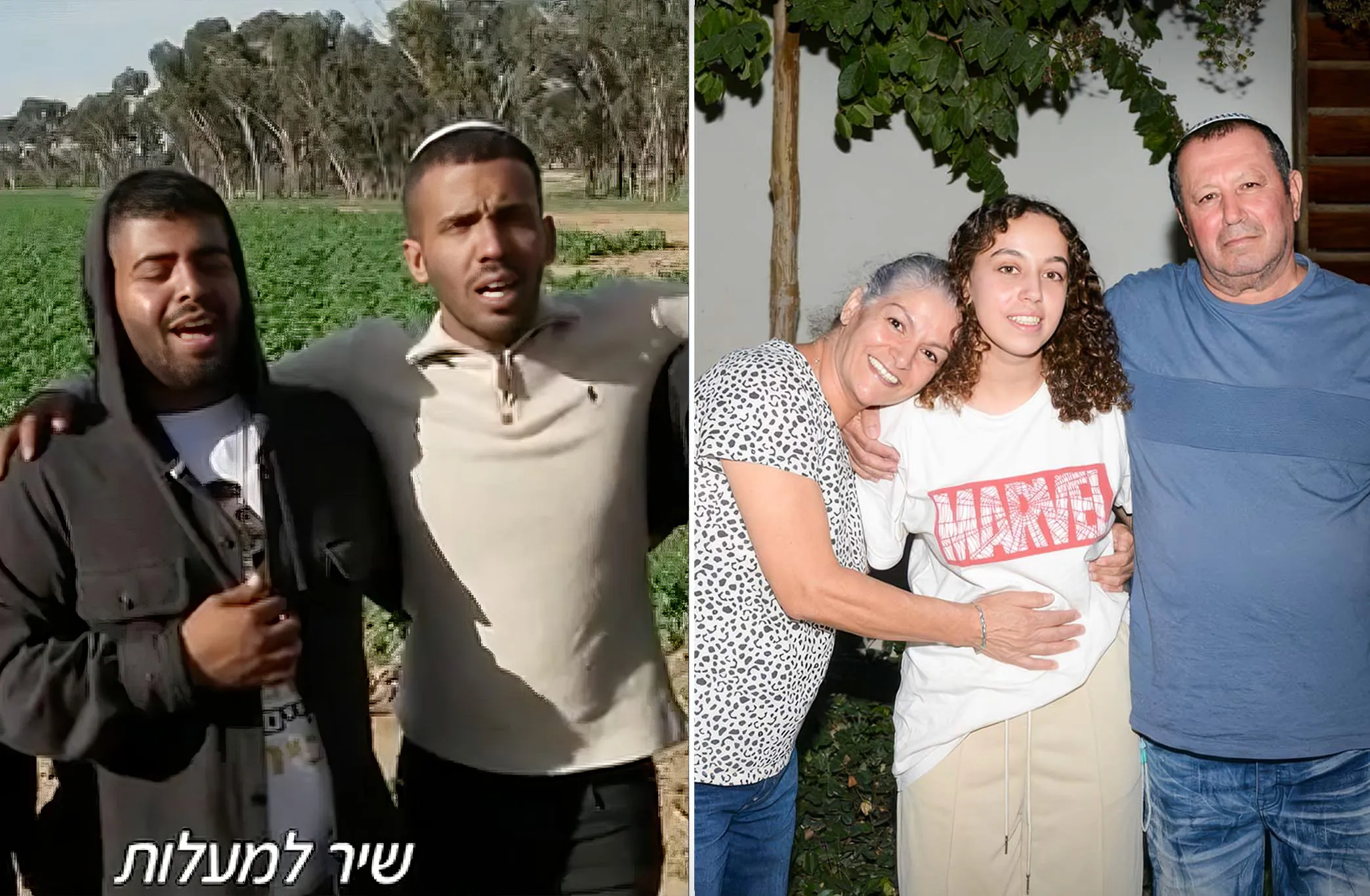
Two Miracles and a Message

Narrating Hope

Hope in Action

Fight to the Finish
